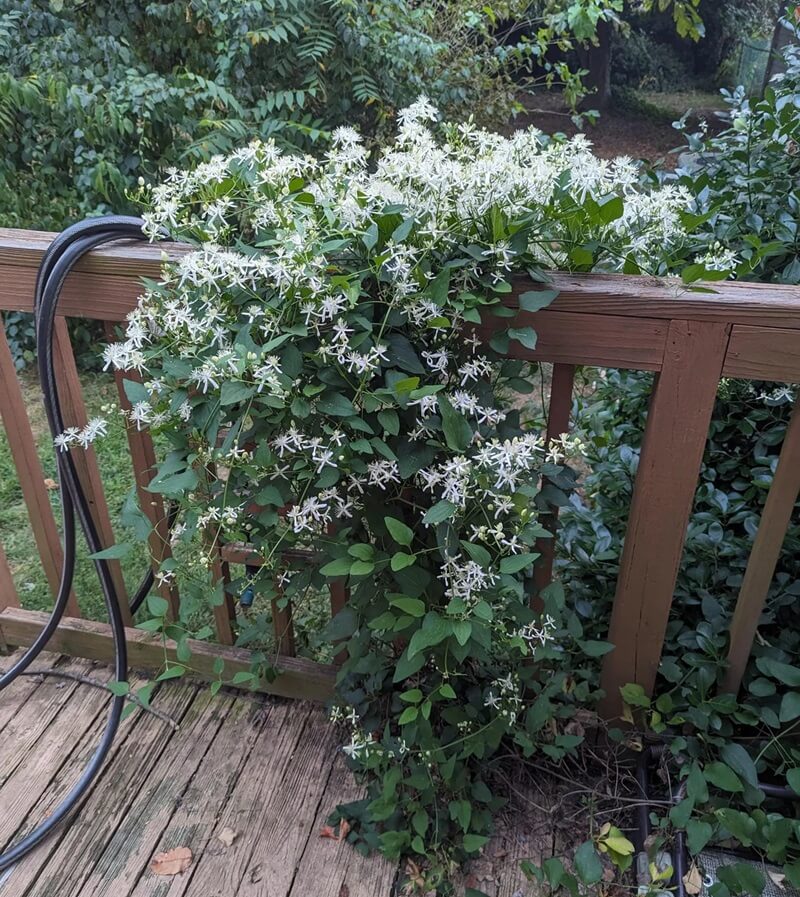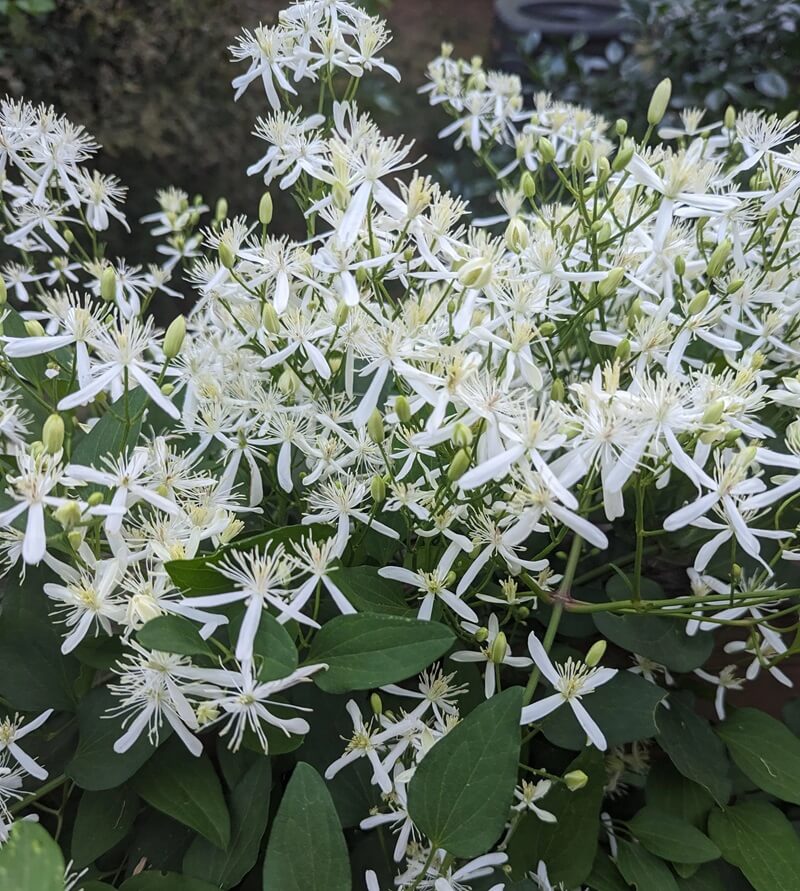While all plants are beautiful in their own ways, that doesn't mean they are always the safest to grow. Preventing invasive plant species from weakening native plant species is important in preserving healthy local ecosystems.
In a Reddit post on the r/whatsthisplant subreddit, a user asking for help to identify the beautiful flowers taking over their backyard was quickly informed that they, while beautiful, were in fact an aggressive invasive plant species.


The Reddit user who posted pictures of the "adorable plant" in New Jersey received plenty of advice on how to get rid of it once users informed them that it was a "highly invasive" plant called sweet autumn clematis.
According to the Center for Invasive Species and Ecosystem Health, though sweet autumn clematis originates from Japan and China, it is highly prevalent as an invasive species up and down the U.S. East Coast and in the Midwest.
"It grows vigorously over other vegetation, forming dense blankets that block sunlight to the plants underneath," the center reported.
Turning your lawn into a natural plant lawn is an excellent way to avoid the consequences of invasive plant species. This will preserve ecosystems and help attract pollinators, save you money, and reduce your water usage. Switching to a native plant lawn can be as easy as sprinkling clover seeds all over your existing lawn or planting native wildflowers.
Even a partial lawn replacement with buffalo grass or a xeriscaped landscape can offer money-saving benefits and help conserve water.
Commenters on the Reddit post helped to provide information about sweet autumn clematis and shared their thoughts on how invasive plant species became so prevalent in the first place.
"I'm in South Jersey and this crap spread everywhere!! Don't be fooled or tempted by its beauty like I was, I've been battling this stuff for 4 years now and it is winning," one user shared.
"Kill it, kill it, I love it, but kill it," another added.
"Sweet autumn clematis is considered highly invasive and should be eradicated from landscape plantings and controlled in disturbed sites and natural area settings," someone else said, citing a report about the plant.
Join our free newsletter for easy tips to save more, waste less, and help yourself while helping the planet.









